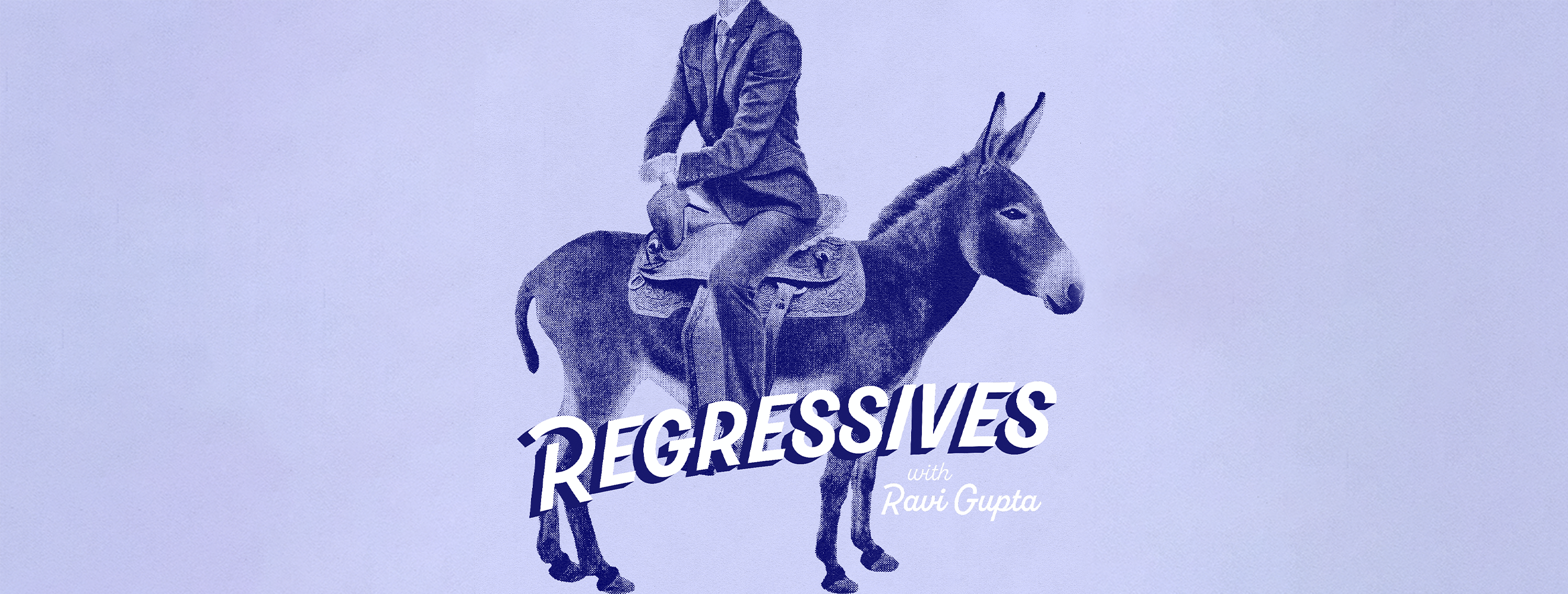Regressives
An internal obudsman for progressives.
This podcast serves as an internal ombudsman for progressives, working to find areas where they can do better, especially for the most vulnerable amongst us. It’s hosted by Ravi Gupta, former Obama campaign and administration staffer turned charter school principal. He and guests ask difficult questions about where progressives have been, and more importantly, where they are going. How do we serve kids better? Or lower the cost of housing? And why is it that blue cities do such a poor job of serving the homeless? The Regressives podcast tackles these questions and much more.
LISTEN Wherever you GET YOUR PODCASTS
HOSTS

Before launching Lost Debate, Ravi founded Arena, where he led a team that helped elect over 75 candidates and train over 1500 political operatives. He’s the co-founder and chair of Second Chance Studios, a media company that exclusively employs the formerly incarcerated, and serves as the co-host of Majority 54, a political podcast about talking to friends and family with different political beliefs. Before Arena, he was the founder and CEO of RePublic Schools, a network of charter schools in the South. He also held a number of roles on Obama’s first campaign and first term, including as assistant to David Axelrod and Susan Rice — where he was “a slightly more substantive version of Gary from Veep.” A native of Staten Island, he graduated from Yale Law School, where, unbeknownst to the faculty, he was a pioneer in the concept of remote schooling, and Binghamton University, where he received an excellent and reasonably priced education.
close

Before launching Lost Debate, Ravi founded Arena, where he led a team that helped elect over 75 candidates and train over 1500 political operatives. He’s the co-founder and chair of Second Chance Studios, a media company that exclusively employs the formerly incarcerated, and serves as the co-host of Majority 54, a political podcast about talking to friends and family with different political beliefs. Before Arena, he was the founder and CEO of RePublic Schools, a network of charter schools in the South. He also held a number of roles on Obama’s first campaign and first term, including as assistant to David Axelrod and Susan Rice — where he was “a slightly more substantive version of Gary from Veep.” A native of Staten Island, he graduated from Yale Law School, where, unbeknownst to the faculty, he was a pioneer in the concept of remote schooling, and Binghamton University, where he received an excellent and reasonably priced education.
close

Before launching Lost Debate, Ravi founded Arena, where he led a team that helped elect over 75 candidates and train over 1500 political operatives. He’s the co-founder and chair of Second Chance Studios, a media company that exclusively employs the formerly incarcerated, and serves as the co-host of Majority 54, a political podcast about talking to friends and family with different political beliefs. Before Arena, he was the founder and CEO of RePublic Schools, a network of charter schools in the South. He also held a number of roles on Obama’s first campaign and first term, including as assistant to David Axelrod and Susan Rice — where he was “a slightly more substantive version of Gary from Veep.” A native of Staten Island, he graduated from Yale Law School, where, unbeknownst to the faculty, he was a pioneer in the concept of remote schooling, and Binghamton University, where he received an excellent and reasonably priced education.
close
EPISODES
filter
All Seasons
